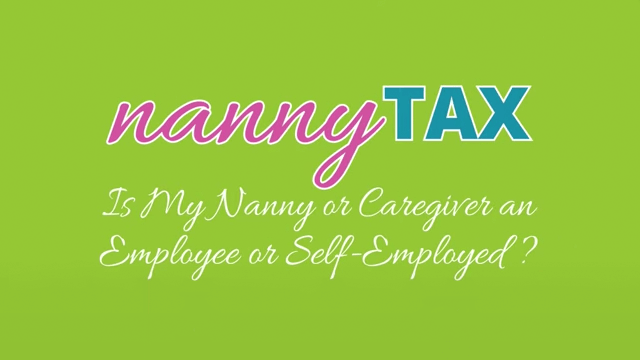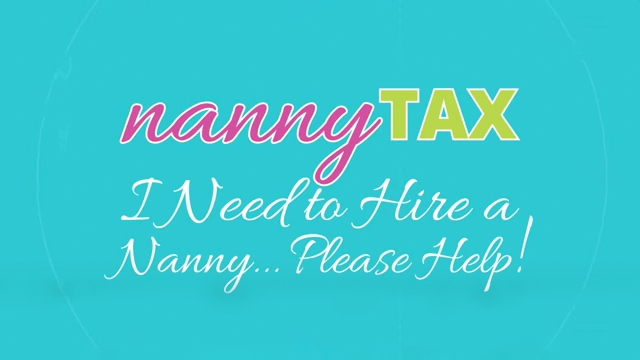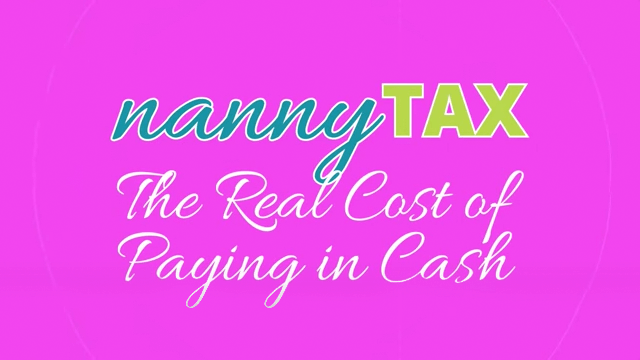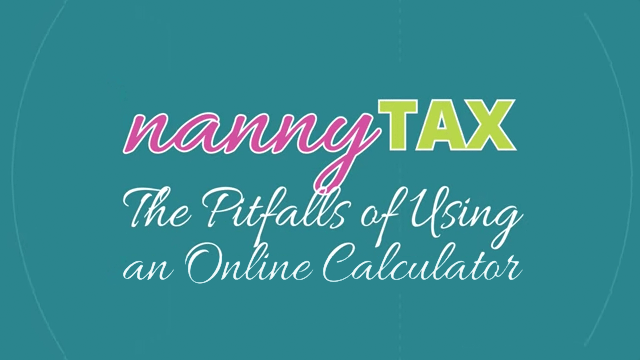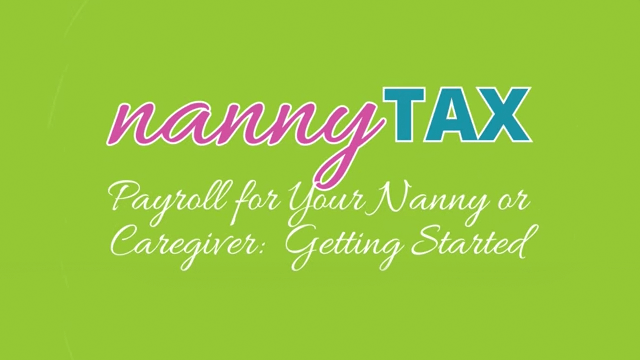
Avoiding Domestic Payroll Pitfalls: Updated Tips on Compliance and Managing Costs
Navigating the world of local payroll can be a bit challenging, but it’s a great opportunity to demonstrate your expertise as a top-notch employer! Whether you have a nanny, caregiver or housekeeper on your team, staying updated on the latest regulations and best practices can truly make a difference. Building upon our previous advice about handling unforeseen expenses, this blog offers an updated overview of essential tips for compliance with domestic payroll to avoid unexpected financial stress.
Mastering Compliance in Domestic Payroll
Let’s revisit the core elements of complying with payroll requirements for domestic workers in Canada. From managing deductions like the Canada Pension Plan (CPP), Employment Insurance (EI) and income tax to maintaining accurate records, the details matter.
What’s New in 2024?
Changing Minimum Wage Rates
Changes in general minimum wage rates are taking place across different provinces.
Keeping your payroll up to date is essential to prevent underpayment and potential penalties. Let’s strive for fairness and transparency! For instance, the minimum wage in British Columbia is set to increase from $16.75 to $17.40 on June 1, 2024, reflecting an adjustment based on the region’s consumer price index. Likewise, Ontario will witness a raise from $16.55 to $17.20 effective October 1, following its annual inflation adjustment.
Table of Current General Minimum Wage Across Canada
| Province | Minimum Hourly Wage | Notes |
| Alberta | $15.00 | Effective as of October 1, 2018. View more information. |
| British Columbia | $16.75 | B.C.’s minimum wage will rise from $16.75 to $17.40 on June 1, 2024. The increase is consistent with the annual increase in the consumer price index for British Columbia in December 2023. View more information. |
| Manitoba | $15.30 | Effective as of October 1, 2023. View more information. As of October 1, 2024 the minimum wage will rise to $15.80 |
| New Brunswick | $15.30 | Effective as of April 1, 2024, the minimum wage is $15.30 per hour. View more information. |
| Newfoundland & Labrador | $15.60 | As of April 1, 2024, the minimum wage is $15.60 per hour. The minimum wage will be adjusted on April 1 of each year relative to the Consumer Price Index. View more information. |
| Northwest Territories | $16.05 | Effective as of September 1, 2023. The minimum wage is adjusted annually using a formula based on the percentage change in the Consumer Price Index (CPI) for Yellowknife and the percentage change in the average hourly wage (AHW) in the NWT for the preceding calendar year. View more information. |
| Nova Scotia | $15.20 | Effective as of April 1, 2024, the minimum wage rate will be adjusted with inflation plus an additional 1% annually to $15.20. View more information and a report from Minimum Wage Review Committee. |
| Nunavut | $19.00 | Effective as of January 1, 2024. View more information. |
| Ontario | $16.55 | Effective October 1, 2024, Ontario will increase its minimum wage from $16.55 to $17.20 per hour, following the annual inflation adjustment. View more information. |
| Prince Edward Island | $15.40 | Effective as of April 1, 2024, the minimum wage will be $15.40. The rate will move to $16.00 on October 1, 2024. View more information. |
| Quebec | $15.75 | Effective as of May 1, 2024. View more information (in French). |
| Saskatchewan | $14.00 | Effective as of October 1, 2023. View more information. As of October 1, 2024 the minimum wage will rise to $15.00 |
| Yukon | $17.59 | Effective April 1, 2024, the Yukon’s minimum wage will increase to $17.59 per hour. The minimum wage is adjusted on April 1 of each year relative to the Consumer Price Index. View more information. |
Source: https://www.retailcouncil.org/resources/quick facts/minimum wage by province/
Increased CPP Contributions
With the rise in CPP contributions this year, you may notice a slight uptick in deductions. The contribution rates for employees and employers to the Canada Pension Plan (CPP) will remain at 5.95%, while the self-employed rate will stay at 11.90%. However, the maximum pensionable earnings under CPP have been raised to $68,500 from $66,600 last year. This adjustment means that employees and employers will contribute slightly more in absolute terms without any rate change.
A new upper earnings limit will be enforced starting in 2024, affecting higher-income earners with additional contributions. If this applies to you, make sure you update your payroll configurations accordingly to comply with CRA regulations and manage your finances effectively.
For more details, make sure to visit these CRA links:
CPP enhancement: https://www.canada.ca/en/services/benefits/publicpensions/cpp/cpp-enhancement.html
CPP contribution rates, maximums and exemptions: https://www.canada.ca/en/revenue-agency/services/tax/businesses/topics/payroll/payroll-deductions-contributions/canada-pension-plan-cpp/cpp-contribution-rates-maximums-exemptions.html
Transitioning to Digital Record-Keeping
The CRA is promoting the use of digital platforms, especially for managing payroll records electronically. If you are still using paper-based systems, now is a good time to think about moving towards digital methods for better accuracy and easy access to your payroll history.
To help with this transition, the CRA provides detailed guidance on how to maintain and protect electronic records. This includes outlining acceptable electronic record formats and guidelines for converting paper documents into digital files to ensure compliance with digital preservation standards. Employers are advised to use electronic imaging software to convert and store paper documents digitally, following national standards to ensure that the images accurately reflect the original documents.
For more information on how the CRA is supporting the shift towards digital methods and specific requirements for electronic record keeping, you can refer to the resources below:
Overview of CRA Digital Services: https://www.canada.ca/en/revenue-agency/services/e-services.html
Information about the ePayroll project: https://www.canada.ca/en/revenue-agency/corporate/about-canada-revenue-agency-cra/epayroll-project.html
Guidelines on acceptable formats for electronic records: https://www.canada.ca/en/revenue-agency/services/tax/businesses/topics/keeping-records/acceptable-format-imaging-paper-documents-backing-electronic-files.html
Sidestepping Common (and Potentially Costly) Pitfalls
The Employee vs. Contractor Conundrum
Navigating between employees and contractors can be challenging. Misclassifying them could result in substantial penalties.
For clarification, refer to our past blog: https://nannytax.ca/caregiver-an-employee-or-self-employed/
Overtime and Vacation or Holiday Pay? Yes, Please!
Who doesn’t appreciate overtime and holiday pay? Everyone loves a break, including your nanny or caregiver. Ensure your payroll system is precise in calculating overtime and vacation or holiday pay to keep everyone satisfied while adhering to legal requirements.
For more details, check out our blog about overtime pay: https://nannytax.ca/overtime-rules-for-nannies-and-caregivers-in-canada/
Don’t Skip the Insurance
Pay attention to the importance of insurance. Employer liability insurance is essential for handling incidents that may happen while your nanny or caregiver works for you. This coverage gives you peace of mind at a reasonable price, protecting you from unforeseen costs in case of accidents.
Making Payroll a Breeze
Simplify your payroll procedures by considering professional services like NannyTax. We specialize in managing everything from deductions to year-end paperwork while staying current on changes in legislation so that you don’t have to. It’s a convenient and stress-free way to ensure compliance with payroll regulations. By staying informed and using NannyTax, you can cultivate a positive work environment and shield yourself from legal and financial surprises. You can call us toll-free at 1-877-626-6982 or email us at taxquestions@nannytax.ca. Let’s make it happen!
Credits: Photo by Karolina Grabowska: https://www.pexels.com/photo/a-woman-computing-bills-while-holding-a-pencil-7680742/






